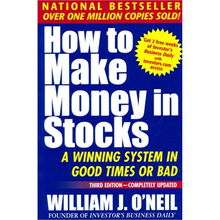Understanding Market Crashes

Market crashes can be daunting, but they also present opportunities for savvy investors. Whether you’re a seasoned trader or just starting out, knowing how to make money from a market crash is crucial. Let’s delve into the various strategies and approaches you can take to capitalize on this challenging yet potentially lucrative situation.
1. Diversify Your Portfolio

One of the most effective ways to navigate a market crash is to diversify your portfolio. This means investing in a variety of assets, including stocks, bonds, real estate, and commodities. By spreading your investments across different sectors and asset classes, you can reduce your exposure to the volatility of any single market.
| Asset Class | Example | Benefits |
|---|---|---|
| Stocks | Technology, healthcare, consumer goods | High potential for growth, but higher risk |
| Bonds | Government, corporate, municipal | Lower risk, steady income |
| Real Estate | Residential, commercial, industrial | Physical asset, potential for rental income |
| Commodities | Gold, oil, agricultural products | Act as a hedge against inflation, currency fluctuations |
2. Focus on Value Investing

Value investing is a strategy that involves identifying undervalued stocks and purchasing them at a price below their intrinsic value. During a market crash, many stocks may become overvalued, presenting an opportunity to buy them at a discount. Look for companies with strong fundamentals, such as a solid balance sheet, consistent earnings, and a competitive advantage in their industry.
3. Leverage Options
Options can be a powerful tool for making money during a market crash. By purchasing call options, you can profit from a rising market, while put options allow you to profit from a falling market. However, options trading is complex and carries its own risks, so it’s essential to educate yourself on the basics before diving in.
4. Consider Short Selling
Short selling is a strategy where you borrow shares of a stock and sell them at the current market price, with the intention of buying them back at a lower price in the future. This can be a lucrative approach during a market crash, as you can profit from the decline in stock prices. However, short selling is risky and requires a margin account.
5. Invest in Dividend Stocks
Dividend stocks can provide a steady stream of income during a market crash. These stocks pay out a portion of their earnings to shareholders, often regardless of the market’s direction. Look for companies with a strong history of paying dividends and a solid financial position.
6. Stay Informed and Patient
During a market crash, it’s crucial to stay informed about the latest news and developments that could impact the market. Additionally, patience is key. Avoid making impulsive decisions based on short-term market movements. Instead, focus on your long-term investment strategy and stay committed to your plan.
7. Use Stop-Loss Orders
Stop-loss orders can help protect your portfolio from significant losses during a market crash. These orders automatically sell your investments when they reach a certain price, limiting your potential losses. Be sure to set stop-loss orders at a level that aligns with your risk tolerance and investment strategy.
8. Explore Alternative Investments
In addition to traditional investments, consider exploring alternative investments such as cryptocurrencies, peer-to-peer lending, and private equity. These investments can offer unique opportunities for growth and diversification during a market crash.
9. Learn from the Experience
Finally, use the experience of a market crash as an opportunity to learn and grow as an investor. Analyze your decisions, identify areas for improvement, and continue to educate yourself on the latest investment strategies and market trends.
By following these strategies and approaches, you can navigate a market crash with confidence and potentially turn it into a profitable opportunity. Remember, investing always carries risks, so it’s essential to do your research and consult with a financial advisor before making any



